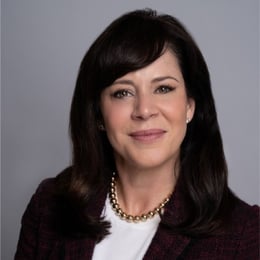While the business case for taking a skills-centric approach to talent processes is increasingly clear, the path to implementation is more complex.
This member-only Flash Call featured industry experts Kelley Steven-Waiss and Sarah Tilley from ServiceNow, who shared best practices and learnings towards becoming a skills-centric organization.
|
Tom Stone, Senior Research Analyst at i4cp, highlighted the critical role of skills as a currency in the evolving job market. Stone discussed challenges arising from dispersed skills data across systems, shedding light on industry trends and advocating for a transformative mindset and operating model to navigate the dynamic skills landscape. Additionally, he emphasized the aid of i4cp guidebooks on skills management, which are practical resources that guide the development of comprehensive skills strategies. |
Insights from ServiceNow We were fortunate to have featured member panelists from ServiceNow share their company’s approach and personal experience implementing a skills based organization. Below is a brief overview of their insights:  |
|
|

| Kelley Steven-Waiss Chief Transformation Officer |
|
| 
| Sarah Tilley SVP of Talent Acquisition &
Development |
|
| 
| Peter Heller VP of Talent Development |
|
| 
| Nur Duygun Director of Skills |
|
|
| Strategic Agility in the Skills Revolution: Kelley Steven-Waiss emphasized the critical importance of strategic agility in navigating the ongoing skills revolution. Organizations must proactively embrace this evolution by prioritizing upskilling and reskilling initiatives. By fostering a human connection in skill development and combining it with agile workforce planning, businesses can create a holistic approach. This involves the seamless integration of human intelligence and technological tools, ensuring a dynamic response to evolving skill requirements and positioning the workforce for success in a rapidly changing business landscape. |
|
|
| Transformative HR Practices: Sarah Tilley underscored the transformative power of HR practices in shaping organizational culture and employee experience. By prioritizing inclusivity, diversity, and well-being, companies can create an environment that fosters innovation and collaboration. Sarah highlighted the role of technology in enabling HR processes, emphasizing the need for an integrated and user-friendly approach. The key takeaway is that aligning HR strategies with broader business objectives is essential for building a resilient and engaged workforce, capable of adapting to the challenges of the future. |
|
|
| ServiceNow's Trifecta for Skills-Based Evolution: Peter Heller outlines ServiceNow's journey with a focus on three key areas: establishing a foundational skills taxonomy, integrating data with AI, and developing applications for personalized experiences. His takeaway underscores the crucial role of technology in supporting skills-based talent management and transforming skills data into valuable, actionable insights |
|
|
| Fostering Growth: Nur Duygun shared ServiceNow's maturity model, detailing the creation of a common skills inventory, an AI-powered skills intelligence engine, and pilot programs for personalized experiences. Nur emphasizes the importance of investing in employees' growth, enhancing capabilities, and adopting a skills-based mindset for sustained organizational success. Their forward-looking plans include integrating skills across the talent ecosystem, enhancing governance, promoting continuous learning, and securing leadership buy-in—an all-encompassing strategy for successful skills-based mindset adoption. |
|
|
| |
| |
What skills to focus on in 2024: |
|
|
See what skills your peers are making a priority in 2024 |
|
|
Prompt Crafting for AI Platforms/Tools |
|
| | |
| Cross Border Collaboration |
|
| |











